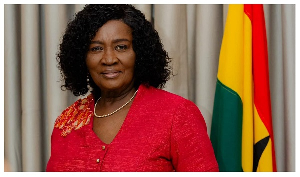The ongoing public tussle over the anticipated compulsory towing levy cannot be allowed to pass without commenting.
When a government takes a decision or chooses a course of action in order to solve a public problem and adopts a specific strategy for its planning and implementation, it is regarded as public policy (Anderson 1975).
In this regard, we can confidently suggest that Public Policy is step or measure being taken by authorities to arrest and ameliorate problems in society.
“ Policy is the product of political influence, determining and setting limits to what the state does (Hill (1993: p.47).”
Interestingly, however, policy making has been examined from varieties of approaches such as rational approach, incremental approach, mixed scanning model, group theory, elite theory, pluralist theory and political system model (Hill,2009).
In fact, I am an avid exponent of the rational model. The rational model for the public policy-making process can be subsumed into three parts: agenda-setting, option-formulation, and implementation. Within the agenda-setting stage, the agencies and/or government officials meet to discuss the problem at hand.
In the second stage, option-formulation, alternative solutions are considered and final decisions are made regarding the best policy.
Consequently, the decided policy is implemented in the final stage. Implied within this model is the fact that the needs of the society are a priority for the players involved in the policy-making process.
It is also worth emphasising that unlike most science research, most policy research is derivative rather than origin. That is, it is produced by creative play with ideas and data already developed by others.
Needless to say that only occasionally does the policy researcher set out to generate new data or assume responsibility for inventing a bright policy idea from scratch (Bardach, 2009).
Somehow, we have made to believe that the compulsory towing levy is a new idea, which has obviously never been tested anywhere on this planet. But the all-important question is: how expedient and pragmatic is the novel policy?
Of course, it is extremely admirable that our policy makers are seeking to invent their own system without ‘cutting and pacing’. My bone of contention, though, is the weird approach in implementing the policy.
Much as we would like to prevent needless road accidents, we cannot and must not burden citizens with extraneous taxes.
Yes, the idea is superb, but the approach is boundlessly unreasonable.
Elsewhere, though, the towing of abandoned vehicles is the responsibility of insurance organisations and other private towing companies.
We could do same here in Ghana. We could enact laws to empower insurance organisations and other private towing companies to undertake towing services through membership subscriptions.
It should never be compulsory. However, the towing companies could be empowered to remove abandoned vehicles, whose owners do not subscribe to any towing services for a fee.
As a matter of fact, public policy may be influenced by political ideology, user demand, economic influence, sociological impact, evolving technology among others.
Suffice it to state that public policy triggers are complex and multifaceted.
That is, policy making involves metatheoretical approaches. In essence, policy making has three parts- problems, players and then the policy.
As a matter of fact, policy formulation should not be the sole responsibility of public bodies or public officials , but rather, the process must involve other policy actors, private or non-official groups. In a way, this public private interaction constitutes the structure of the political system within which policy actors may contribute meaningfully to the policy process.
Indeed, the effectiveness of public and civil society collaborative efforts in policy formulation can be found in the United Kingdom. In the UK, policies are often developed through negotiations between governmental agencies and pressure groups.
All the same, it would appear that the compulsory towing levy is a translation of a needless political vision into action. Yes, it goes without saying that political inertia cannot be ruled out in the policy making process.
“the policy-making process is by no means the rational activity that it is often held up to be in much of the standard literature. Indeed, the metaphors that have guided policy research over recent years suggest that it is actually rather messy, with outcomes occurring as a result of complicated political, social and institutional processes which are best described as evolutionary (Juma and Clarke 1995).”
Moreover, there is a school of thought that views the challenge of increasing global competition from emerging economies such as China or India as providing further impetus for increased social reform and change in the emphasis of public policy toward facilitating increased competitiveness (Blair, 2006; Brown, 2006).
It is also worth stressing that the ordinary citizens, pressure groups and the media may influence a policy change in one way or the other.
It is absolutely true that the aforementioned entities makeup of the electorates in the country, hence they are in a better position to lobby or petition the authorities to drop irrational policy or promulgate new policy.
It is also worth noting that in the likelihood of political party faithful not getting their wish from their incumbent government, there is a possibility of showing that particular power that be the door through the ballot box.
In this regard, it can be argued that citizens could impact a policy change, because the authorities do not want to be voted out of office the next time around.
Of course, voters could influence a policy change. However, as argued, the ultimate decision rests on political inertia.
Take, for example, as noted by Kogan (1999), “governments will seek to legitimise their policies with reference to the notion of evidence-based decision making, but use research evidence only when it supports politically driven priorities.”
Whatever the case, the Ghanaian media are expected to play their role in the policy formulation by highlighting the flaws and shortcomings in many aspects of the compulsory towing levy and making sure to expose the politicians responsible for it, and by encouraging levels of public expectations which the Government has not been able to satisfy.
It would also be a worthwhile if the Ghanaian media have communicated a great deal of useful information and opinion to the general public and occasionally raised the levels of public consciousness.
Believe it or not, in a free society, the mainstream media are expected to be critics than supporters of those in power, and, in a pluralist liberal democracy it is right that this should be a norm.
Opinions of Thursday, 3 August 2017
Columnist: K. Badu, UK
The irrational Ghanaian polity, politics and policy makers
Entertainment














